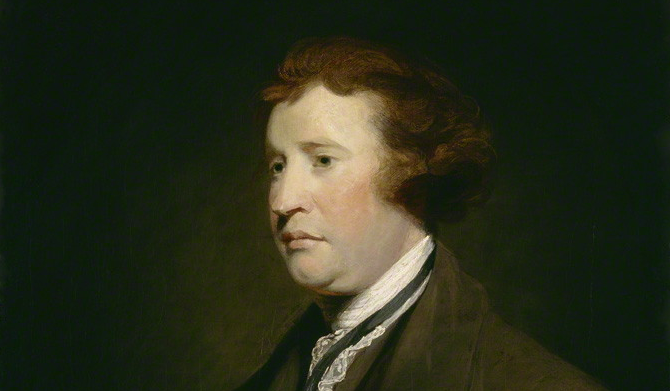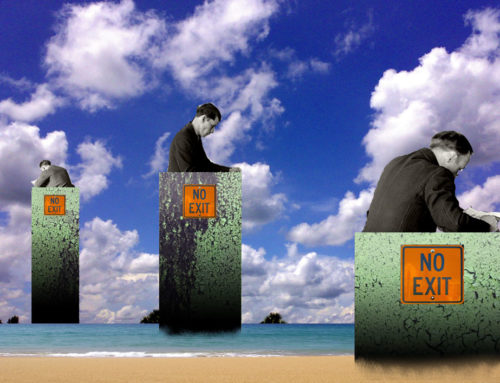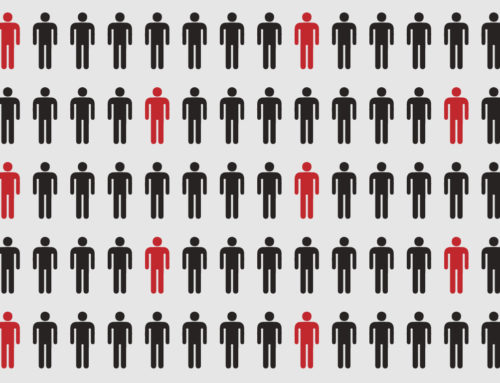By: Sonia Maria Pavel
“Only man placed values in things to preserve himself – he alone created a meaning for things, a human meaning! That is why he calls himself “human,” that is: the esteemer. […] Only through esteeming is there value: and without esteeming, the nut of existence would be hollow.”[1] – F. Nietzsche
In the Reflections, Edmund Burke expresses his concern with the radical political changes prompted by what were then recent events in France. He sees the “new conquering empire of light and reason” threatening to tear off the old “decent drapery of life.”[2] Contrary to the enlightened reformers leading this empire of light, Burke defends prejudice and the “pleasing illusions” that surround political power. In his view, prejudices ought not to be cast aside simply because they are old or irrational, but rather valued as a common moral heritage that engenders stability through feelings of familiarity and belonging.
In this article, I differentiate between two dimensions of Burke’s argument. The first is a historical and anthropological description of ‘pleasing illusions’ – their manifestations and meanings in pre-revolutionary France. On this front, I take Burke to be arguing that the ‘pleasing illusions’ surrounding power are not designed as ways of deceiving people into obeying authority, but evolve alongside relationships of obedience thereby making them gentler and more liberal.[3] According to him, communities and cultures are not built from scratch in accordance to a rational plan to yield particular results, but emerge and develop historically.
At the same time, on a secondary political level, Burke’s argument is not merely a tribute to this fading cultural reality; it is in itself a rationalist justification of why it should be revived and rehabilitated. Burke argues that life without such prejudice is brutish and crude. Sans prejudice we would be left with nothing but our “naked shivering nature,” alone and afraid. As a result, he reasons that conventions should be maintained through prejudice.[4]
This article starts by outlining a definition of political deception as a practice of rationalist design, in which deceit is used to promote a particular social or political goal. It then moves on to the first dimension of Burke’s argument and examines what he means by prejudice and illusions and why these practices and beliefs do not fall under that definition. Finally, it explains why even though prejudices and pleasing illusions are not themselves deceptive, the same might not be true of Burke’s own defense and his larger political project of rehabilitating prejudice.
Political Deception: Making Power Loved
I understand political deception to be the conscious promotion of information that is known to be false in pursuit of a determinate end result. At its core, political deception is a rationalist practice. First, those who use it always start from a particular goal they want to achieve and then try to identify the perceptions, opinions, or feelings of their target audience that might prevent them from succeeding. Their goal can be as limited as seizing political power in a given system for a given period of time, or as overarching as reorganizing an entire political community in a particular fashion. Second, in order for a political figure to believe that they are deceiving an audience, they have to at least think that they are in possession of a truth they want to conceal. If a presidential candidate launches an accusation they know to be false or inaccurate against their opponent, we can say that he or she is attempting to deceive the voters, though this would not be the case if the candidate had sufficient reason to believe that the accusations were true. Although the results of the campaign might turn out to be identical in the two scenarios, the actions of the two political actors are qualitatively different, given their knowledge of falsity and truth respectively.
The ‘truth’ that is distorted when one engages in political deception, moreover, does not have to be absolute, but only relative to a particular agent’s own belief system. For example, a preacher who tells a congregation of disciples that they will achieve divine bliss in their afterlife if they follow certain commandments cannot be accused of deceit, on the condition that he believes that to be true himself. In such scenarios, it might be the case that we can only evaluate the authenticity of the belief, rather than the veracity of its content, to determine whether the rhetoric meets the criteria of political deception.
A famous example of political deceit can be found in Book III of Plato’s Republic in the founding myth of the Kallipolis, the city-state governed by philosopher kings. This ideal community must be set up in accordance to Plato’s definition of justice, i.e. a society in which every citizen knows his place and performs his natural part. This requires the institution of a hierarchical system in which the three different classes – the guardians, the auxiliaries, and the farmers or other workers – can each perform their clearly defined functions. To create and justify this social and political organization, a ‘noble lie’ is told to the members of the community, according to which each man is born with a particular type of metal in his soul, as fashioned by the gods. Whether one is made of gold, silver, or iron and bronze determines one’s role in the community and the amount of deference that is owed to him.[5]
Plato’s founding myth, or ‘noble lie’, meets the criteria I have laid out in my definition of political deception. The story is told with a particular goal in mind, namely the founding and harmonious development of the ideal city meant to be ruled by philosopher-kings. In order to justify the different upbringing that each social category receives, the people are told that their place in the world was determined by the gods, which is a deliberate contrivance – a ‘noble’ lie. Those who came up with the story know it to be false, but use it in order to facilitate a desired political outcome.
Prejudice and ‘Pleasing Illusions’: Making Power Lovely
As opposed to political deceptions such as Plato’s noble lie, the prejudice and pleasing illusions that Burke invokes in his historical and anthropological account are not devised nor planned by a political actor to achieve a particular goal. No particular person designed the manners, conventions, and habits surrounding ranks and honors in France or England in order to purposefully bring about the subordination of lower social strata to higher ones. The monarchy, the aristocracy, and the church evolve historically, and so too do perceptions of these institutions. Prejudice and institutional practices develop interdependently, rather than the former functioning as a blueprint for the latter. For Burke, the social practices of private life were translated into political counterparts. In his view, “the sentiments which beautify and soften private society” were imperceptibly incorporated into politics over time.[6]
Burke calls the totality of these pleasant, elegant sentiments and ways of being the age of “chivalry.”[7] Since ancient times, Europe’s history and its character have been marked by chivalrous behavior, manners, and feelings. The greatness of countries like England and France, according to Burke, lies in achievements made within and precisely because of this culture. Without eliminating the “gradation of social life,” its ranks and privileges, chivalry has produced a noble equality – “it was this opinion that mitigated kings into companions, and raised private men to be fellows of the kings.”[8]
In other words, the pleasing ‘illusions’ surrounding political power lie at the core of everybody’s self-understanding in a stable monarchy, without anyone ever consciously planting them there. In Burke’s account, all these accretions and forms of deference were not the result of Machiavellian plans by a ruling class who knew itself to be no better than the people they ruled, and therefore chose to deceive them into obedience. The ranks themselves developed at the same time as their embellishments, with ruled classes feeling deference towards their rulers and the rulers feeling entitled to such deference and at the same time responsible for their subjects. The “age of chivalry” symbolizes this mutual obligation and respect, the result of a common worldview in regards to power and privilege. Sovereigns submit to “the soft collar of social esteem” to the same extent as their subjects submit to their authority.[9] Unlike political deception, the rules of etiquette and the illusions that dress power are as much a part of the “moral imagination” of aristocrats and of the masses.[10]
In addition to these prejudices being part of the shared moral capital of a society, rather than the device of a particular class, it does not make much sense to evaluate them in terms of their truth value or facticity; they are merely the social, cultural, and political reality of a time and place. The queen of France, Burke tells us, was an apparition of grace, elegance, and distinction, hardly touching the ground when she moved. Marie Antoinette seemed to live in an “elevated sphere,” above those who had the honor of being in her presence.[11] The admiration, respect, and awe that she inspired was transitively bestowed upon the institution she represented and its laws. The prejudice engendered by these pleasing ‘illusions’ consisted of feelings of “love, veneration, admiration, and attachment” towards the queen, as she embodied the laws and institutions of her country.[12]
As long as these sentiments of love towards an institution prevail amongst all ranks, and the representatives of that institution believe that they deserve that love and act accordingly, we cannot talk about a political system based on deception. The dresses of Marie Antoinette and the splendor of Versailles were not concealing a lie, but were the aesthetic manifestations of a particular culture in which the monarchs and the nobility were more respected and respectable than other social orders. The laws of obedience and the hierarchies of power in the pre-Revolution monarchy were not beautifully decorated so as to be bearable; they were the genuine way in which the French people envisioned their society. By the same logic, the churches and cathedrals of the time were decorated in the most sumptuous and awe-inspiring manner not in order to deceive people into honoring God and the clergy, but because people genuinely believed in God and honored the clergy.
Burke’s Political Deception
The word ‘illusion’ does not accurately capture the role of ranks, honors and accretions surrounding a functional monarchy like the one described by Burke when referring to pre-revolutionary France. Such conventions only come to be ‘illusions’ once one starts to believe that there is a more plausible or even a ‘true’ social order that is concealed by deceitful embellishments. In other words, they become illusions only when one starts to conceptualize the reality behind them in a different manner. When this happens, maintaining old window-dressings becomes deceitful. So, for example, if people started believing that liberty, equality, and fraternity are the true sentiments that unite them, then the ways in which inequality and rigid hierarchies were dressed up in the previous social and political order start to look like deceptions. The feeling of suspicion towards the appearances of a previous social reality are only born when that reality becomes obsolete or is surpassed by another reality, one that appears to be ‘more true’. In the story of Hänsel and Gretel, for example, it only makes sense to say that the house made of gingerbread and candy is deceptive once one finds out that a wicked witch who kidnaps children lives there.
For Enlightenment thinkers at the time of the French Revolution, the exterior appearances of nobility and monarchy are illusions because they believe that such appearances conceal a reality of perfect equality among human beings. But Burke calls them illusions for a different reason. He makes it clear that he does not believe in the abstract rights and liberties of men, but instead in the real ones, i.e. the rights inherited from one generation to the other. Given that circumstances give color to political principles, he cannot congratulate the French upon their new-found liberty, just as he cannot congratulate a madman from escaping from his cell.[13] Nonetheless, he does seem to believe that “all the superadded ideas, furnished from the wardrobe of a moral imagination” are “necessary to cover our naked shivering nature.”[14] For Burke, there is something concealed underneath ranks, manners, and chivalry, but that reality is not one of liberty and equality. It is a reality with no rules and no civilization, in which we are exposed to each other and fearful. The ‘illusions’ of rank and hereditary monarchy keep us civilized and respectful to each other, not allowing us to kill, resent, and plot against one another; this is how Burke seems to believe that power will be obtained and supported in a post-revolutionary world.[15]
Burke admits that he cannot possibly anticipate the gravity of the loss of the ancient opinions and rules of life in Europe, but he nonetheless fears that they will provoke severe damage, given that a new reality will be exposed to us. From fear of such uncertainty, Burke advises against abandoning prejudice and our present manners and traditions. Europe was flourishing the day the French Revolution was completed, but there is no way to know where it would head without a moral compass to rely on. Only time will tell how much of that flourishing depended on “the spirit of our old manners and opinions.”[16] Nonetheless, he wants to make sure that stability is maintained against those calling for revolutionary change, inspired by the French. According to Burke, the two principles that have sustained England and Europe throughout the ages, “the spirit of a gentleman” and “the spirit of religion” are to be preserved at all costs if one does not want to risk becoming a “nation of gross, stupid, ferocious, and at the same time, poor and sordid barbarians.”[17]
This leaves Burke in the position of arguing for prejudice and pleasing illusions as noble fictions that conceal our naked and shivering natures from each other, while maintaining the present society and political system. His argument meets the two components of the principle of political deception I outlined in the first section of the article. Burke is consciously promoting a falsity (political authority and ranks softened by pleasing illusions), and doing so in pursuit of a determinate end result (political stability).
Burke’s fears about what might happen if power is stripped of its pleasing illusions expose him as disillusioned with the nature of nobility and hereditary monarchy. He is not arguing for the intrinsic value of these institutions, but rather for their instrumental value in preventing a collapse into barbarity, conflict, and instability. Thus, he sees the rationalist revolutionary project as a reckless attempt to tear down the “decent drapery of life,” by individuals who forget that it is precisely such ‘drapery’ that makes life decent. For him, obedience is difficult, if not impossible, in the absence of the supporting prejudices. As such, he prefers that people be deceived by the beautiful, noble lies that soften the expression of political power. Without obedience and deference to authority, men would be wolves to other men. Without her dresses and her aura of grace and elegance, Marie Antoinette is just a woman and “a woman is but an animal; and an animal not of the highest order.”[18]
Conclusion
When analyzed closely, Burke’s defense of prejudice and pleasing illusion seems to be an attempt at political deception. His end goal is the stability of England and the avoidance of a revolution, and he is purposefully endorsing a ‘noble lie,’ similar to Plato’s, in order to achieve that goal. I argued that prejudice and political ‘illusion’ are not political deceptions in themselves; they are merely culturally specific practices and beliefs. However, they become political deceptions if they are promoted for the sake of a particular goal, with the knowledge that they serve to conceal a truth or social reality that would go against that very goal. Burke’s plan is rationalist in precisely this respect. Prejudice is “of ready application in an emergency,” “and does not leave the man hesitating in the moment of decision, skeptical, puzzled, and unresolved.”[19] Prejudice and pleasing illusions are not upheld for their own sake in Burke’s defense, but rather as means to rehabilitating and maintaining a social and political reality that has come under threat.
Sonia Maria Pavel is a Wien International Scholar from Romania who currently studies Philosophy and Anthropology at Brandeis University
Image: Portrait of Edmund Burke, via wikicommons.
[1] Friedrich Nietzsche, Thus Spoke Zarathustra, trans. Walter Kaufmann (London: Penguin Books 1978), 59.
[2] Edmund Burke, Reflections on the Revolution in France (Oxford University Press 2009), 77.
[3] Ibid.
[4] Ibid.
[5] Plato, Republic, Book III, 414b-415.
[6] Burke, Reflections on the Revolution, 77.
[7] Ibid, 76.
[8] Ibid.
[9] Ibid, 77.
[10] Ibid.
[11] Ibid, 75.
[12] Ibid, 77.
[13] Ibid, 8.
[14] Ibid, 77.
[15] Ibid, 78.
[16] Ibid.
[17] Ibid, 79.
[18] Ibid, 77.
[19] Ibid, 87.










Leave A Comment